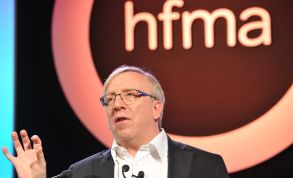Budget health and social care omission criticised
Chancellor Rishi Sunak focused on the economy to ease the pressure on businesses as the country emerges from the current Covid restrictions. He set out a three-part plan that he said aimed to protect jobs and livelihoods. As well as extending the furlough and self-employment support schemes until September, he addressed the public finances and measures to develop the economy in the future.
There was little about health and social care in the Budget statement, though the chancellor did confirm that £1.6bn would be allocated to support the vaccine roll-out.
In November's spending review, Mr Sunak allocated £3bn in 2021/22 to support NHS recovery, including £1bn to tackle elective backlogs, £500m to address waiting times in mental health, and £1.5bn to ease existing pressures caused by Covid-19.
Budget documents confirmed NHS England's core funding will increase to £136bn in 2021/22 (from almost £130bn in 2020/21). However, while core funding will rise, there is a planned reduction in Covid funding (set out as a separate item in Budget tables). Covid-19 funding will fall from £18bn to £3bn in 2021/22, leading to an overall cut in NHS England funding of £8.6bn. Department of Health and Social Care Covid funding is due to fall by almost £37bn.
Nuffield Trust chief executive Nigel Edwards (pictured) said there was a striking absence of further measures to support the recovery of health and social services.
‘Recovery from the pandemic will take several years, not only for the economy, but for the NHS to work through waiting lists, boost capacity and adjust to the ongoing demands of Covid-19 on the health service. An increase in the NHS budget for the next financial year is likely to be needed as well as honesty that patients are going to end up waiting longer for some time,’ he said.
‘The temporary extra funding set out in the spending review last autumn was only a start in what is required to support recovery for the NHS. The chancellor will need to go further in his pledge to give the NHS what it needs to deal with the long-term aftershock of the pandemic.’
Saffron Cordery, NHS Providers deputy chief executive, urged the government to reaffirm its commitment to giving the NHS whatever it needs to deal with Covid-19.
‘The reality is that in the longer term, we will need to see further investment to help the health service meet the increased demand across acute, mental health, community, and ambulance services to treat people who have coronavirus now as well as longer-term challenges, such as the clearing the backlog of elective care and dealing with additional demand for mental health services. We also need to support and reward the NHS workforce who have worked tirelessly during the pandemic.’
The chancellor also failed to address the need to reform social care, she added. ‘Successive governments have promised to fix social care and yet none have delivered the radical change we need. We are urging the government to deliver on its promise to unveil a plan for reforming social care by the end of the year.’
Much of the public finance element of the chancellor's plan focused on personal taxation, including the freezing of the pension lifetime allowance, which will remain at just over £1m until April 2026.
The British Medical Association has called for an urgent meeting with the chancellor and health and social care secretary Matt Hancock, fearing the move would have a ‘grave impact’ on the medical workforce. Reacting to a leak of the measure over the weekend, the BMA said many experienced doctors would have no choice but to reduce hours or leave the NHS entirely. Similar warning were made following adjustments to the annual allowance in 2019/20, which led to changes in the annual allowance rules.
In a letter to Mr Sunak, the doctors’ trade union said: ‘Both the available annual allowance and lifetime allowance – including its annual indexed linked increase – are carefully considered by senior NHS workers when determining their working patterns for the following year and ultimately their retirement plans.
‘We are deeply concerned that if you press ahead with this policy, this will result in large numbers of doctors retiring early or working less than full time, at the very time our patients need them the most.’
Other Budget measures
- The national living wage will increase to £8.91 an hour from April.
- Apprenticeship incentive payments will rise to £3,000 between 1 April and 30 September.
- Though National Insurance and income tax will not be increased, there will be a freeze on personal tax thresholds after the 2021/22 rise, which will take the standard band to £12,570 and the higher rate to £50,270. The measure will last until April 2026.
- There will be visa reforms and simplified applications to attract highly skilled migrants.
- £10m will be allocated to fund veterans’ mental healthcare.
Related content
We are excited to bring you a fun packed Eastern Branch Conference in 2025 over three days.
This event is for those that will benefit from an overview of costing in the NHS or those new to costing and will cover why we cost and the processes.